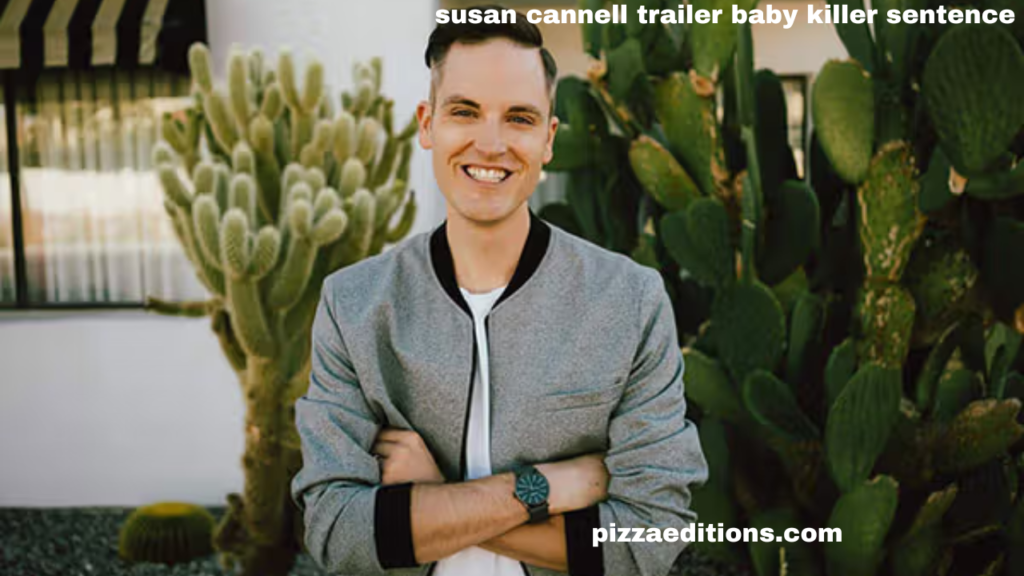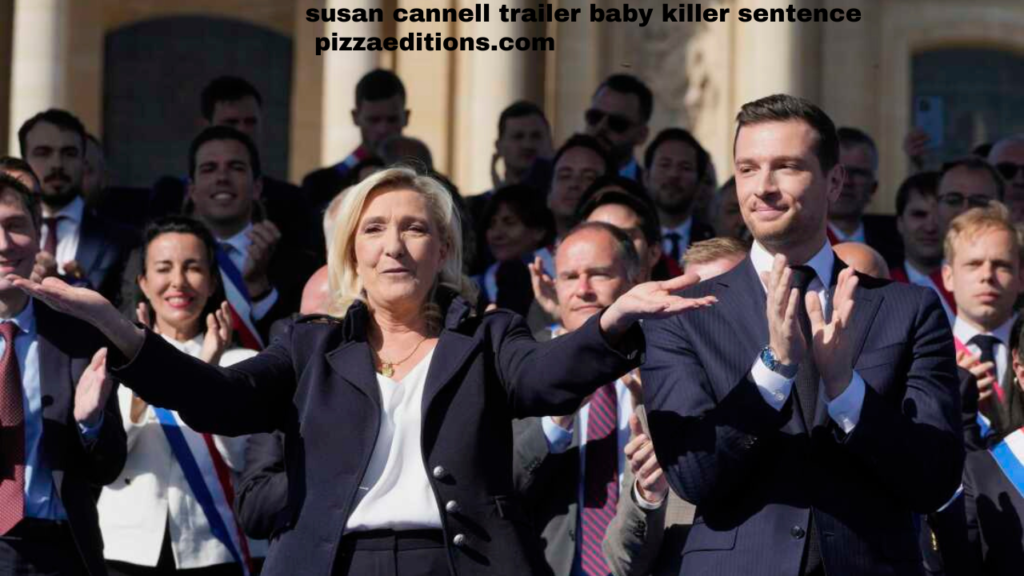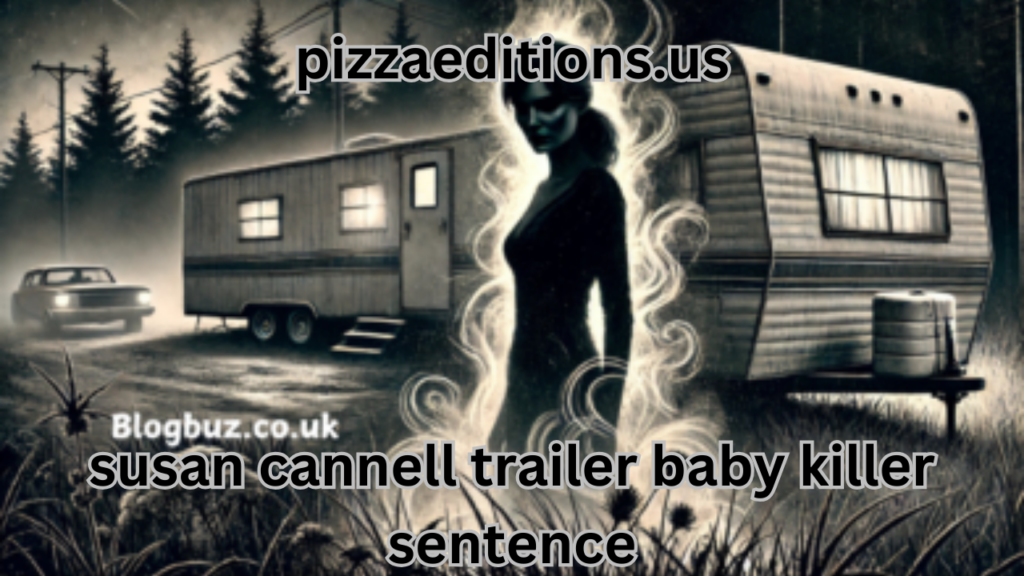The moniker “susan cannell trailer baby killer sentence: Exploring the Infamous “Trailer Baby murder” Sentence” has evoked strong emotions among communities, legal circles, and the larger public. This case, mired in both sorrow and controversy, continues to resound throughout the country as a striking reminder of social, legal, and psychological difficulties. At the core of it is Susan Cannell, whose punishment in what has become widely known as the “Trailer Baby Killer” case sparked fundamental concerns about justice, responsibility, and mental health.
The Incident That Shocked the Nation

The nickname “Trailer Baby Killer” relates to the tragic case of Susan Cannell, who was accused with the killing of her baby child in a rural trailer park. The specifics, as discovered in court hearings, were bleak and extremely disturbing. According to police, the child was discovered murdered under strange and reportedly abusive conditions. The youngster had undergone lengthy neglect, finally leading to its terrible death. The act, found by neighbors and subsequently verified by law police, left many reeling in shock.
This case immediately drew widespread attention, not only due to the tragic death of a baby but because of the troubling background in which it unfolded: isolation, poverty, and mental instability. The label “Trailer Baby Killer” became synonymous with Susan Cannell, marking her as a deeply controversial figure in modern criminal history.
Susan Cannell’s Trial and the Legal Proceedings

Susan Cannell faced a range of accusations, including second-degree murder, criminal child negligence, and manslaughter. Prosecutors said that she intentionally and willingly endangered her child’s life. The defense, however, portrayed a different picture—one of a mentally ill lady coping with acute post-partum depression, isolation, and abuse.
The trial itself was an extremely intense event. Graphic evidence from medical examiners, social workers, and even Susan’s own family created a gloomy picture of the child’s brief existence. The defense team pleaded for leniency, noting Susan’s mental health condition and terrible personal background. Mental health doctors took the stand, saying that Susan was suffering from several problems that affected her capacity to make reasonable judgments.
After weeks of deliberation and intense media scrutiny, the jury found Susan Cannell guilty. Yet, the sentencing that followed shocked many.
The Sentencing: A Divided Nation Reacts

When the court handed down its sentence, the reactions were instant and polarizing. Susan Cannell received a sentence that many deemed either too harsh or too lenient, depending on one’s perspective. Some argued that her punishment did not fit the gravity of the crime, while others felt the system had ignored her fragile mental health.
The court condemned Susan Cannell to 18 years in jail, with the possibility of release after 10 years. The court recognized her mental health issues but underlined that the life of a child had been lost owing to egregious carelessness and potential intent. As the word circulated, the public was divided.
Advocates for mental health awareness felt the court missed an opportunity to set a precedent on how the justice system could incorporate psychiatric evaluation in cases of child neglect and abuse. On the other hand, victims’ rights advocates expressed anger, arguing that the justice system had once again failed a voiceless victim—the baby.
2 Media Frenzy and Public Perception
The media played a significant role in shaping the public narrative surrounding the “susan cannell trailer baby killer sentence: Exploring the Infamous “Trailer Baby Killer” Sentence.” From local outlets to national headlines, coverage was intense, emotional, and often sensationalized. Photos of Susan Cannell in handcuffs, weeping in court, and the grim images of the trailer where the tragedy occurred were circulated widely.
Talk shows, podcasts, and online forums exploded with commentary. Everyone seemed to have an opinion on Susan Cannell, with some depicting her as a monster and others as a victim of a broken system. Documentaries and true crime series further intensified the spotlight, dissecting every piece of evidence and courtroom exchange.
This public fascination with the case revealed more than just a societal obsession with crime; it showed how narratives could shift depending on framing, exposure, and media influence. It also raised ethical concerns about how such cases are presented to the masses.
Aftermath and Continuing Impact
Years after the sentence, the ramifications of this case continue to resonate across society. Laws regarding child protection, mandated reporting, and mental health exams in parental custody disputes have come under increasing criticism. Agencies responsible for monitoring at-risk families have been asked to enhance supervision and response systems.
Susan Cannell remains incarcerated, and although she has filed appeals, none have yet been successful. Her case has become a symbol for everything from the failures of social services to the need for reform in the criminal justice system.
Conclusion: A Story That Still Haunts
“susan cannell trailer baby killer sentence: Exploring the Infamous “Trailer Baby Killer” Sentence” is more than just a headline. It is a haunting tale of neglect, mental illness, and judicial dilemmas. It is a story that has left a permanent scar on all those involved—the victim, the accused, the family, and even society at large.
While opinions remain divided on the fairness of Susan Cannell’s sentence, one fact is undeniable: the loss of a young life and the haunting questions that linger about how it all could have been prevented. This case continues to be dissected, debated, and discussed, ensuring that the name and the tragedy it represents will not soon be forgotten.
Also Read : blog.banjarportnet.co.id: Exploring Insights, Trends, and Information
